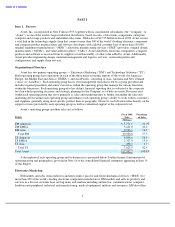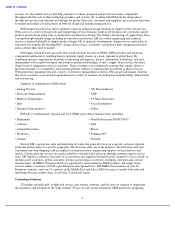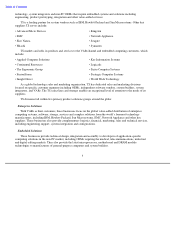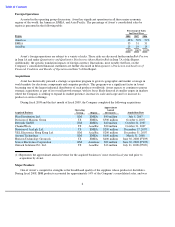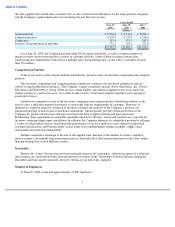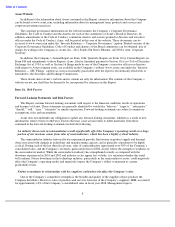Avnet 2008 Annual Report Download - page 14
Download and view the complete annual report
Please find page 14 of the 2008 Avnet annual report below. You can navigate through the pages in the report by either clicking on the pages listed below, or by using the keyword search tool below to find specific information within the annual report.
Table of Contents
financial reporting may not prevent or detect misstatements because of its inherent limitations, including the
possibility of human error, the circumvention or overriding of controls, or fraud. Therefore, even effective internal
controls cannot provide absolute assurance with respect to the preparation and fair presentation of financial
statements. In addition, projections of any evaluation of effectiveness of internal control over financial reporting to
future periods are subject to the risk that the control may become inadequate because of changes in conditions, or that
the degree of compliance with the policies or procedures may deteriorate. If the Company fails to maintain the
adequacy of its internal controls, including any failure to implement required new or improved controls, or if the
Company experiences difficulties in their implementation, the Company’s business and operating results could be
harmed, and the Company could fail to meet its reporting obligations, which could have a material adverse effect on
its business and the share price.
If the Company’s internal information systems fail to function properly, or if the Company is unsuccessful in
the integration or upgrade of information systems, its business operations could suffer.
The Company’s expanding operations put increasing reliance on the Company’s internal information systems in
producing timely, accurate and reliable reports on financial and operational results. Currently, the Company’s global
operations are tracked with multiple internal information systems, some of which are subject to on-going IT projects
designed to streamline or optimize its global information systems. There is no guarantee that the Company will be
successful at all times or that there will not be integration difficulties that will adversely affect the Company’s
operations or the accurate recording and reporting of financial data. In addition, these systems are subject to
computer hacking or other general system failure. Maintaining and operating these systems requires continuous
investments. Failure of any of these internal information systems or material difficulties in upgrading these
information systems could have material adverse effects on the Company’s business and its compliance with
securities laws.
Major disruptions to the Company’s logistics capability could have a material adverse impact on the Company’
s
operations.
The Company’s global logistics services are operated through specialized and centralized distribution centers
around the globe. The Company also depends almost entirely on third party transportation service providers for the
delivery of products to its customers. A major interruption or disruption in service at one or more of our distribution
centers for any reason (such as natural disasters, pandemics, or significant disruptions of services from our third party
providers) could cause cancellations or delays in a significant number of shipments to customers and, as a result,
could have a severe impact on the Company’s business, operations and financial performance.
The Company may not have adequate or cost-effective liquidity or capital resources.
The Company’s ability to satisfy its cash needs depends on its ability to generate cash from operations and to
access the financial markets, both of which are subject to general economic, financial, competitive, legislative,
regulatory and other factors that are beyond the Company’s control.
The Company may need to satisfy its cash needs through external financing. However, external financing may
not be available on acceptable terms or at all. As of June 28, 2008, Avnet had total debt outstanding of $1.23 billion
under various notes and committed and uncommitted lines of credit with financial institutions. The Company needs
cash to make interest payments on, and to refinance, this indebtedness and for general corporate purposes, such as
funding its ongoing working capital and capital expenditure needs. Under the terms of any external financing, the
Company may incur higher than expected financing expenses and become subject to additional restrictions and
covenants. Any material increase in the Company’s financing costs could have a material adverse effect on its
profitability.
Under some of its various credit facilities, the Company is required to maintain certain specified financial ratios
and meet certain tests. If the Company fails to meet these financial ratios and tests, it may be unable to continue to
utilize these facilities. If the Company could not continue to utilize these facilities, it may not have sufficient cash
available to make interest payments on and refinance indebtedness and for general corporate needs.
11




